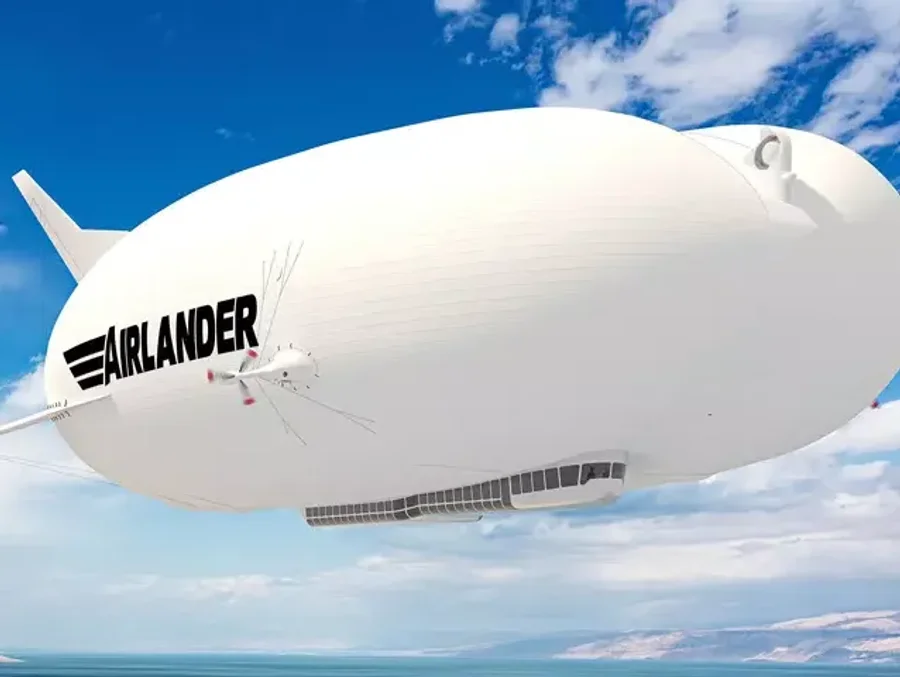2024 marks a pivotal year for EVs, with growth, regulation and debates on incentives as governments navigate the path to a sustainable transition.
What happened in April 2024
Transport innovation is soaring to new heights in the Scottish Highlands with the introduction of Hybrid Air Vehicles (HAV) Airlander 10. Through a partnership with the Highlands and Islands Transport Partnership (HITRANS), the part-plane, part-airship will transform travel across one of the UK’s most rugged landscapes.
A new era for highlands transport
The Airlander 10 is being hailed as a game-changer for the Highlands, a region known for its breathtaking scenery but challenging transport infrastructure. From unpredictable weather to narrow roads often shared with wandering livestock, traditional modes of travel can be slow and unreliable.
The Airlander 10 offers an innovative solution, promising smoother, faster and more sustainable journeys.
Tom Grundy, CEO of Hybrid Air Vehicles, stated, “This decade, Airlander 10 can help open up new commercial opportunities and access to tourism, making it easier to see friends and family and improving access to vital public services.”
HAV plans to produce six Airlander 10 aircraft for HITRANS, though production is not expected to begin until 2030. Once operational, the aircraft will play a crucial role in improving connectivity across the Highlands and Islands, a region covering over 50% of Scotland’s landmass.
Sustainable air travel
Scotland’s goal to achieve net-zero air transport by 2045 aligns perfectly with the Airlander 10’s design and capabilities. The aircraft combines airship and fixed-wing technology, offering an eco-friendly alternative to traditional planes.
Key features of the Airlander 10 include:
- Capacity to carry 100 passengers or up to 10 tonnes of freight.
- 90% fewer emissions compared to similar aircraft.
- Ability to take off and land with minimal infrastructure, making it ideal for remote regions.
Ranald Robertson, Director of HITRANS, highlighted the significance of this partnership: “We are committing resources and effort to work with even greater focus with HAV to produce a compelling business case that will attract the commercial interest and investment required.”
Boosting local tourism and economy
Beyond its environmental benefits, the Airlander 10 is set to become a tourism attraction in itself. Passengers will enjoy unparalleled views of the Highlands from the air, a perspective that highlights the region’s natural beauty.
The enhanced connectivity will stimulate local economies by attracting more visitors and enabling more efficient transportation of goods.
Production hub in South Yorkshire
While the Airlander 10 will take over Scotland’s skies, its production base is at Carcroft Common in South Yorkshire, England. The site is poised to become a hub for innovation in sustainable aviation, with HAV’s focus on creating aircraft that meet future needs.
A global push for sustainable aviation
The Airlander 10’s potential impact resonates far beyond Scotland. Across the globe, similar efforts are underway to make aviation more sustainable. In New Zealand, Air New Zealand is preparing for the arrival of its first all-electric aircraft, the ALIA CTOL from Beta Technologies. Initial operations will focus on cargo services, with plans to expand to passenger flights.
In addition, Air New Zealand has partnered with Neste, a leading chemical manufacturer, to acquire 9 million litres of Neste MY Sustainable Aviation Fuel. The move highlights the airline’s commitment to reducing its carbon footprint while supporting the global shift towards greener aviation.
A greener horizon for air travel
As HAV and HITRANS lay the groundwork for Airlander 10’s introduction, the project stands as a beacon of what sustainable innovation can achieve.
With its ability to transform regional transport, boost tourism and align with ambitious net-zero goals, the Airlander 10 aims to leave a lasting impact on the Scottish Highlands and beyond.



